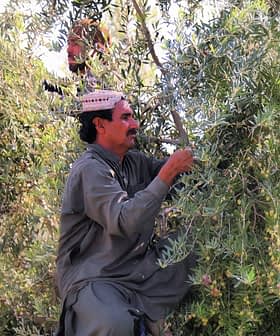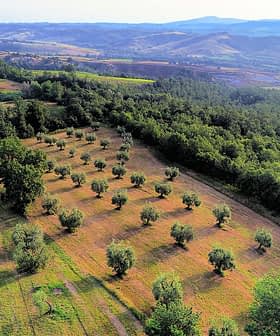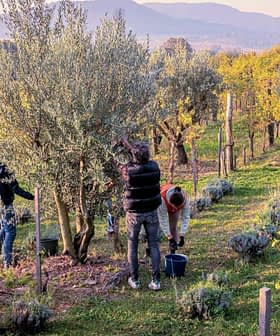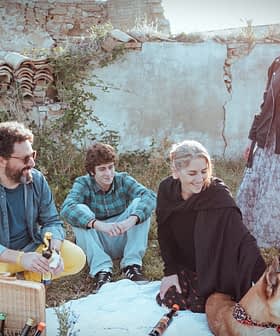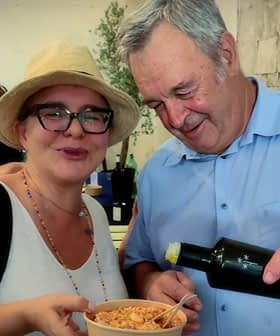Malta’s New Olive Growers Cooperative Seeks to Professionalize Historic Sector
Ahead of a bumper harvest, the cooperative aims to transform the thousand-year-old sector through investment, education and tourism.
 Sorting olives at one of Malta's modernizing mills
Sorting olives at one of Malta's modernizing mills Despite a heatwave and dry summer, Jimmy Magro is confident that the 2023/24 crop year will be a turning point for Malta’s olive oil sector, with an anticipated harvest of 60,000 kilograms of olives. Magro, president of Malta’s Olive Growers Cooperative, is focused on revitalizing the historic crop by professionalizing the sector, promoting organic olive groves, and integrating olive oil production with tourism to increase sales and create a unique experience for visitors.
Despite a July heatwave and dry summer, Jimmy Magro is confident that the coming 2023/24 crop year will be a watershed moment for Malta’s olive oil sector.
“The last rainfall we had was in April, but it’s going to be a good harvest,” the president of Malta’s newly-formed Olive Growers Cooperative told Olive Oil Times.
Citing estimates from the national agriculture ministry, Magro said Malta is anticipated to yield 60,000 kilograms of olives from 130 hectares of groves in the coming crop year.
See Also:People Here Use More Olive Oil than Anywhere Else in The WorldMalta is a small Mediterranean archipelago composed of three main islands and many smaller ones about 90 kilometers south of Sicily and 300 kilometers east of Tunisia.
Olive trees have grown on Malta for over 1,000 years, flourishing under Phonecian and Roman rule. However, Arab conquerors replaced olive trees with cotton plants in the 9th century CE. The cotton was later replaced by sheep pastures under British rule.
Magro hopes the bumper harvest and founding of the Olive Growers Cooperative, which already has 50 members, will revitalize the island’s historic crop. “Olive growers need to join the cooperative,” he said. “We need to get the sector organized.”
Many producers in Malta are small-scale growers who farm olives part-time and work full-time in separate industries. However, Magro said there is growing interest in olive oil production on the island, with some new entrants converting old vineyards to olive groves and planting new olive trees on empty land.
He founded the cooperative in October 2022 to professionalize the sector. Due to its small size, he believes focusing on quality and finding niche customer bases is the best way for olive oil production to thrive.
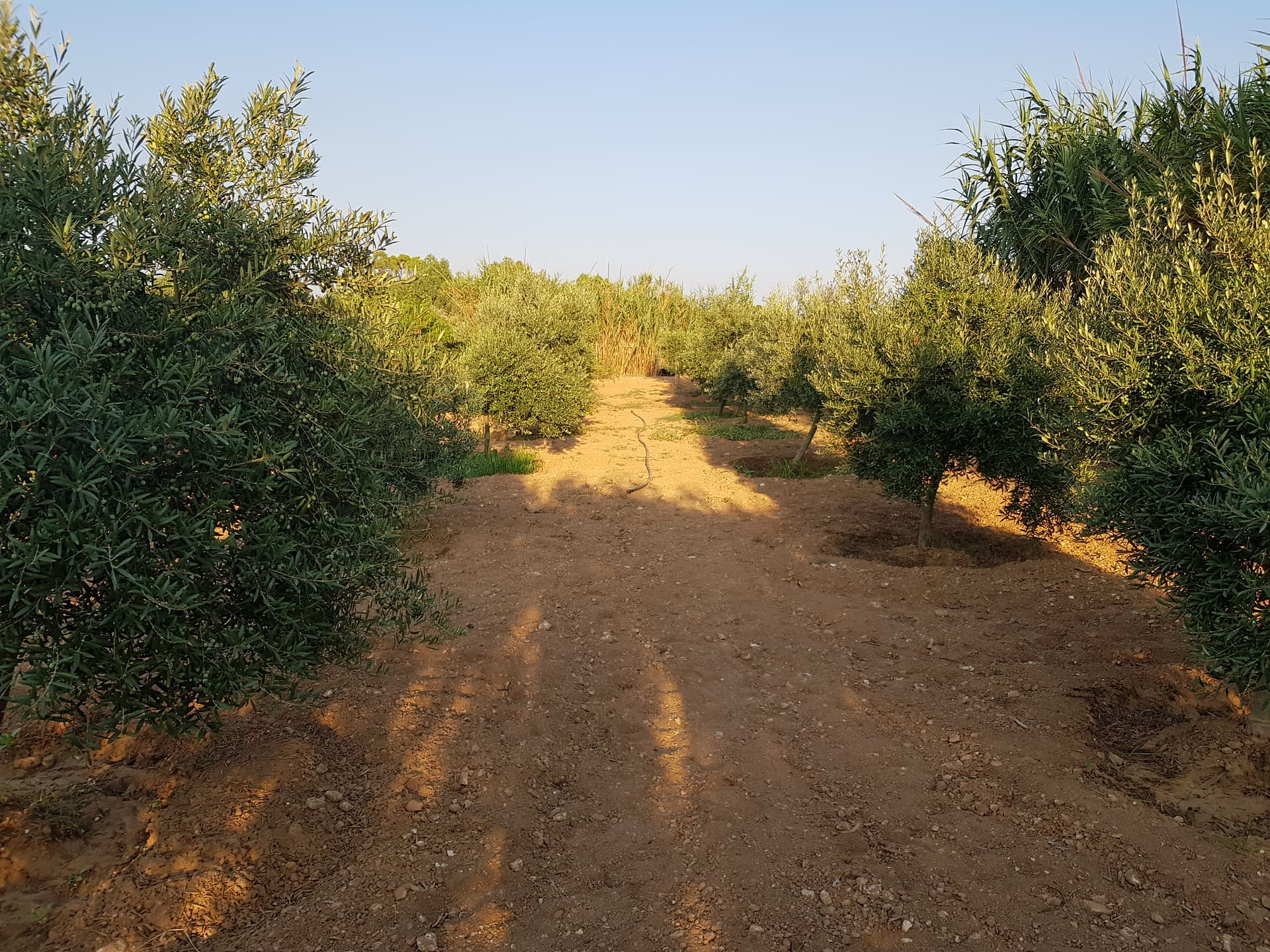
Malta’s Olive Growers Cooperative in ecouraging farmers to plant more olive trees.
According to the International Olive Council, Malta, which is home to about 520,000 people, consumes about 1,000 tons of olive oil each year. As a result, finding new sales and marketing partners is the sector’s main long-term challenge. “We can find a new market segment,” Magro said.
He added that educating farmers about farming best practices and improving the infrastructure of the olive oil production chain are the two critical factors to the sector’s success.
Magro strongly believes that converting to organic olive groves is one of the best practices that Maltese producers must adopt. “We see a very strong trend in that direction.”
The ministry is in the process of setting up a dedicated mill for organic olive oil production, with which Magro said the cooperative would likely be involved.
The cooperative is also working with the national government and Unaprol, Italy’s national olive oil producer association, to teach growers about pruning, fertilization, pest management and harvesting best practices.
Magro said these will come in agricultural extension services, allowing farmers to meet expert advisors one-on-one in their groves to receive hands-on training.
He also discussed the need for the country’s existing millers to invest in their mills by increasing storage capacity and improving bottling equipment.
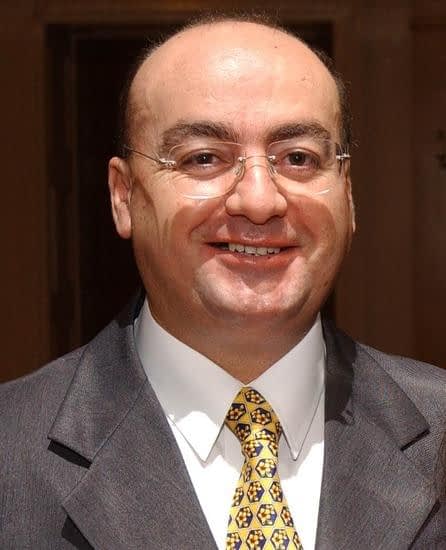
Jimmy Magro founded the Olive Growers Cooperative in October 2022.
There are also plans to increase efficiency through digitalization. Magro wants to allow growers to connect digitally with millers during the harvest to schedule times to deliver their olives and pick up their olive oil, streamlining a sometimes messy process.
“This is very important to maintain quality. Sometimes, the millers are overrun by large quantities of olives at one time,” he said. “It would be like booking a hotel room for olive growers.”
While the traditional Italian varieties, including Frantoio, Leccino, Carolea and Pendolino, make up most of the country’s olive groves, one-third is comprised of native varieties: Maltija, Bidnija, Bajda and several wild varieties.
According to research from the University of Malta, the Maltija cultivar is the most popular among local growers due to its high level of productivity, while the Bajda is most distinctive with its white drupes.
Meanwhile, the Bidnija cultivar is thought to be the oldest, with evidence of the variety being planted during Roman times. The olive variety is also well suited to drought and has a high content of polyphenols.
For his part, Magro said extra virgin olive oil made from native varieties has distinctive organoleptic qualities endowed by the combination of Malta’s unique climate and topography. According to Magro, climatic conditions in Malta are similar to those of Tunisia.
As a result, the cooperative has drafted documents to apply for Protected Designation of Origin or Protected Geographical Indication certifications from the European Union. Malta has three registered PDO certifications for wines and has applied for one for Ġbejna tan-nagħaġ Belg cheese.
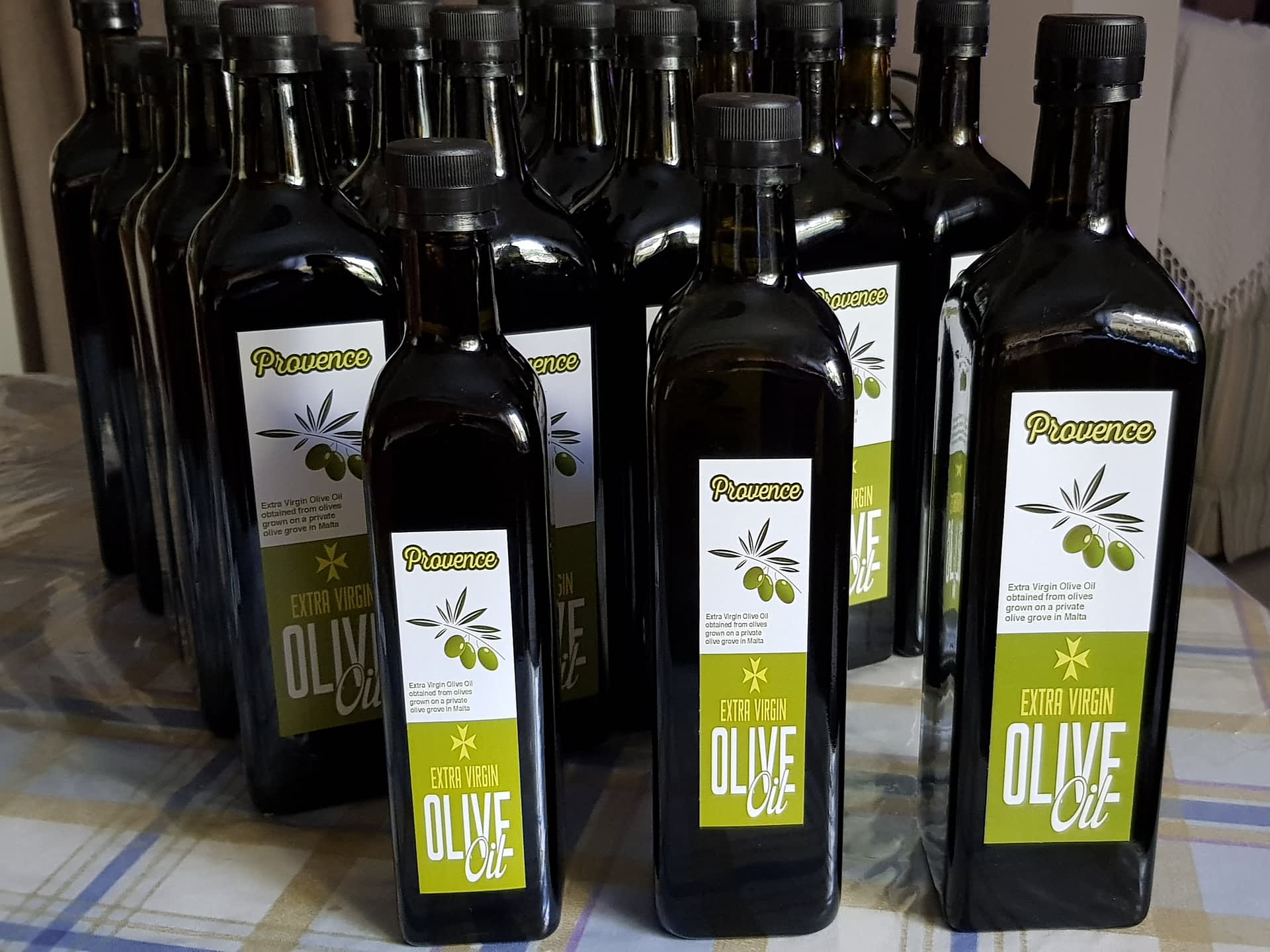
Magro said the sector expects to enjoy an abundant yield in the 2023/24 crop year.
Magro said the cooperative works closely with the national government on the PDO and PGI applications. Along with these efforts, Magro wants to further work with local authorities to develop an extra virgin olive oil culture in Malta, starting with its youngest inhabitants.
“We want to have a scheme where school children – who are already given free milk – also receive free extra virgin olive oil twice per week,” he said. “It’s not going to be very expensive, and if we start from a young age, teaching children about extra virgin olive oil and the olive tree, they will become familiar with the product and hopefully be future consumers.”
Magro’s ultimate goal is to integrate the olive oil sector with the rest of Maltese society. As a result, the cooperative plans to host and participate in various events leading up to the harvest.
In September, they will visit local festivals in Zejtun (from the Arabic word for olive oil) and Zebbug (meaning olive) to promote local olive oil. The cooperative will also hold an event focused on improving production quality and implementing organic farming practices on November 26th to celebrate World Olive Day.
Magro also seeks to integrate Maltese olive oil production and tourism, one of the country’s main economic drivers.
“We’re looking into the possibility of setting up some form of cooperation to introduce olive oil tourism in Malta,” he said. “We have very high numbers of tourists coming.”
Magro added that oleotourism would likely lead to increased olive oil sales to tourists. Nearly 2.3 million tourists visited Malta in 2022, contributing €2.2 billion to the local economy.
“We want visitors to have a special experience visiting the olive grove, learning about olive cultivation on Malta and tasting our extra virgin olive oil,” he concluded.
Share this article


